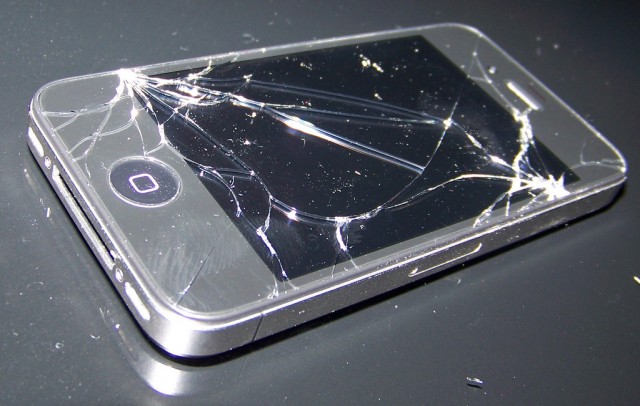
After spending almost three weeks this summer arguing to a jury that Samsung had persistently copied its products, Apple won a stunning $1.05 billion patent and trademark verdict. But after that win—which, if it holds up, will be the largest patent verdict in history—Apple continued to pursue a even bigger prize. It sought a court-ordered injunction that would kick Samsung phones off the market altogether.
Now it's clear that an injunction is not in the cards. In an order [PDF] issued Monday, US District Court Judge Lucy Koh said that while Apple had established that "design, as a general matter, is important to consumers more broadly," it hadn't proven that infringement of its design patents caused "irreparable harm."
She goes on to discuss utility patents:
Apple did not establish at the preliminary injunction stage that the ’381 patent was central enough to Samsung’s products to drive sales, and has not established that fact here either. Nor has Apple established that either the ’915 or the ’163 patents actually drive sales of any Samsung products. Neither statements about broad categories, nor evidence of copying, nor the conjoint survey provides sufficiently strong evidence of causation.
The '163 patent had to do with the tap-to-zoom function, while the '915 and the '381 concerned pinch-to-zoom and the "rubber band" feature, respectively.
Apple had more luck asking for an injunction on the grounds that Samsung had infringed its "trade dress," the unique look of its products. But the problem with that argument is that none of the Samsung products found to "dilute" Apple's trade dress are on the market, in any form. "The parties have cited, and the Court is aware of, no case issuing a permanent injunction under the [Federal Trade Dilution Act] for products that are no longer available."
The company will surely ask for an injunction again on appeal, but that will take many months. Even at that time, it's going to be a very high bar. It looks like Apple may have to be satisfied with monetary damages in this case.
The last key post-trial issue Koh has to rule on is the issue of damages. Apple wants them to be significantly increased because of Samsung's willfulness. But at the key post-trial hearing last week, Koh was asking more questions about lowering damages than increasing them.
More than a dozen Samsung phones were found to infringe Apple patents. But by the time the injunction issue was fully briefed and argued in court, only three of the more than 20 Samsung phones accused at trial were still on the market—all different versions of the Galaxy S II.
When Koh made her final plea for a settlement last week, Apple's lawyer suggested that if they don't get an injunction, the litigation will have to drag on.
"If there's a new trial on damages, or no injunction—if you didn't see the same case that the jury saw—then I'm not sure," said Apple lawyer Harold McElhinny during last week's hearing. "I'm not sure how we get a resolution." The billion-dollar verdict, he said, would amount to no more than a "slap on the wrist."
While the products at issue here aren't on the cutting edge of the market anymore, the impact on Apple's overall litigation crusade is still very significant. If they couldn't convince a judge to grant a product-killing injunction after a major win in front of a jury, there's no reason to believe it will suddenly get easier, even if they do have another victory.
A new lawsuit full of patent claims and counter-claims involving Samsung's and Apple's newest phones is working its way through the courts as well. That case is scheduled for trial in 2014.
Jury foreman in the clear — no new trial
In a separate order [PDF], Koh put to rest Samsung's wish for a new trial because of alleged misconduct by the jury foreman, Velvin Hogan.
Samsung had argued Hogan was biased against it the whole time. He didn't disclose a lawsuit that Seagate, a former employer of Hogan's and a company partly owned by Samsung, filed against him 19 years ago.
Koh wrote:
As an initial matter, it is not clear whether Mr. Hogan was intentionally dishonest. Neither party has conclusively shown whether Mr. Hogan intentionally concealed his lawsuit with Seagate, or whether he merely forgot to mention it when asked by the Court whether he was ever involved in a lawsuit, or whether he believed that the answer he gave had sufficiently responded to the Court’s question. Further, it is not even clear that Mr. Hogan knew of any relationship between Seagate and Samsung. Mr. Hogan left Seagate’s employment in 1993, and his lawsuit against Seagate was nearly two decades ago.
Even if Hogan had been dishonest, Koh ruled, Samsung had waived its right to object because it didn't inquire much about Seagate during jury selection.
"Samsung cannot use post-verdict statements unrelated to any potential bias to restart the clock on its obligation to investigate," Koh wrote.
As for Samsung's post-trial project of combing through Hogan's interviews and finding spots where he was wrong on the the law, whatever evidence it produces in that manner is barred by the rules of evidence, Koh found. He had no outside knowledge "specific to the facts of this case," and his comments about what happened during deliberations, or jurors' "mental processes," are inadmissible.
Samsung's request for a new trial was a huge longshot based on one juror's long-ago connection to a company not even on trial. It's unsurprising that Koh would stand by the jury's verdict and not allow Samsung's fishing expedition to continue.
reader comments
152